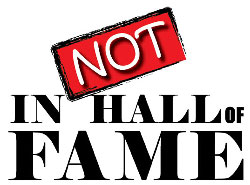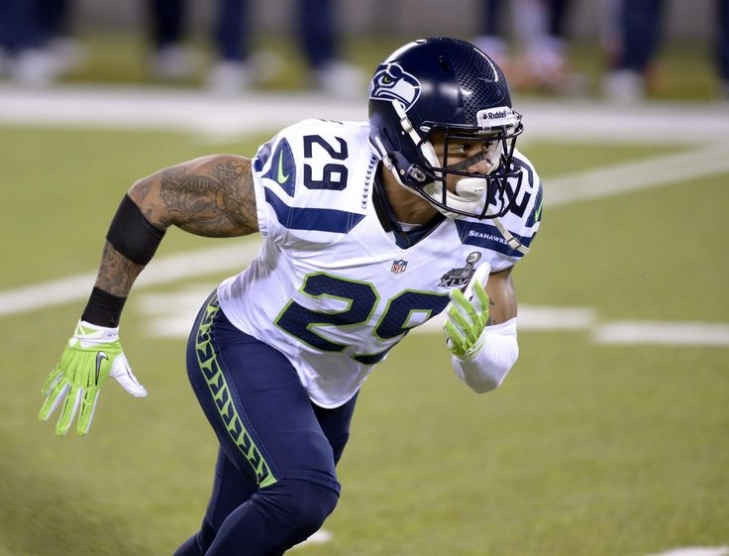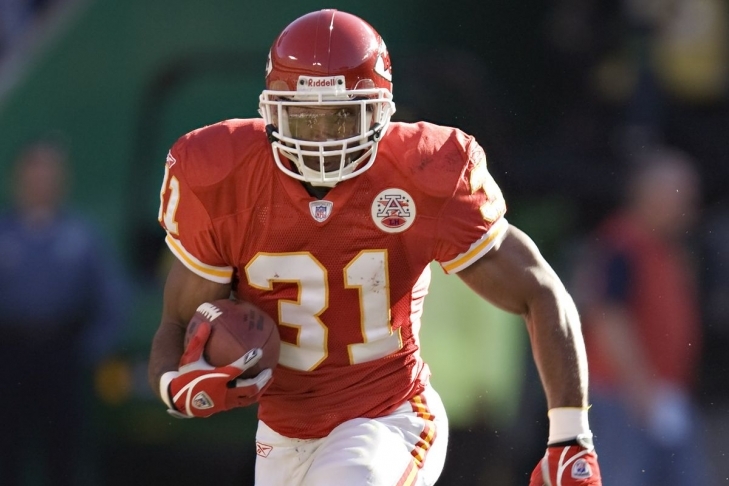8. Earl Thomas
Earl Thomas was a superstar at Texas where he received All-American honors. He was selected as the 14th pick of the 2010 NFL Draft and became an immediate starter at Free Safety. In his sophomore season of 2011, he started a five-year streak of Pro Bowls and three-year run of First Team All-Pros in 2012. Thomas was an essential member of the Legion of Boom, a group of Defensive Backs that helped the Seattle defense hold Denver to only eight points in their Super Bowl XLVIII Championship win.
Despite Richard Sherman receiving more attention, Thomas was equally as good and earned his sixth Pro Bowl in 2017. However, Thomas left the Seahawks for Baltimore as a Free Agent in 2019. After one Pro Bowl year, an altercation in practice with a teammate (Chuck Clark) proved to be too much for the Ravens, as his toxic nature wore out its welcome not only in Baltimore but the rest of the NFL. Domestic violence issues surrounding him further tarnished his reputation.
Earl Thomas may not have ended his career on his own terms, but he was one of the best Safeties of the 2010s. Not many former players were named to an All-Decade Team, but Thomas certainly earned that honor.
277. Derrick Johnson
Derrick Johnson played all but his last season of his career with the Kansas City Chiefs and the former 1stRound Pick from Texas would slowly work his way to the upper echelon of NFL Linebackers and he would be named to four Pro Bowls out of five from 2011 to 2015. Johnson, who was also named a First Team All-Pro in 2011 would have five years where he had more than 105 Combined Tackles and retired with 1,168 overall with 27.5 Quarterback Sacks and 14 Interceptions.
275. Bud McFadin
Bud McFadin had an excellent career in pro football, yet when it comes to discussing him for the Hall of Fame, his name never comes up. Perhaps it should, but we get why it doesn't.
222. Spec Sanders
At first, this might seem like a person who may not deserve a rank, but the more we look at it, the more we think he deserves a spot on this list.
131. Priest Holmes
Priest Holmes may have played for the high-profile Texas Longhorns in college, but that did not result in a draft selection. Undrafted in 1997, Holmes would sign with the Baltimore Ravens. The Running Back would see no action as a rookie but would rush for 1,008 Yards in 1998 and did well until Jamal Lewis supplanted him as the lead Back for Baltimore. Holmes would gain a Super Bowl Ring out of it, but he sought work as a starter, and he would sign with the Kansas City Chiefs where he would get that opportunity.
20. Ox Emerson
Ox Emerson was a member of the NFL All-Decade 1930's Team. He started his professional football career in 1931 with the Portsmouth Spartans. In his second season, he was selected to his first of five straight First Team All-Pros. Despite being ironically nicknamed due to his height of under six feet and weight of less than 200 pounds, Emerson used his skill and smaller size to his advantage, evading tacklers with his footwork and positioning.
After the Spartans relocated to Detroit, the team was renamed the Lions. Emerson played a crucial role in their Championship win in 1935. Throughout his career, his work in the trenches was a vital part of the team's rushing success, making him one of the best Linemen that Detroit ever had. Emerson has been a Centennial Slate Hall of Fame Finalist, indicating that he has a possible chance of gaining entry through a seniors committee in the future.
30. Tommy Nobis
In the first incarnation of our Football list, how could we we forget about a legendary Atlanta Falcon? Granted, there have not been that many in the past history of the Falcons, but we may very well have forgotten about a solid Linebacker in Tommy Nobis who was easily the first bright spot of the Southern franchise.
As one of the finest linebackers in collegiate history, Tommy Nobis was the first draft pick (and first overall of 1966) for the expansion Atlanta Falcons. Nobis was a feared tackler and was the star of the early Falcons defensive squads. He was a Pro Bowler in his first three seasons and would lead the Falcons in tackles on nine occasions.
314. Casey Hampton
A former Big XII Defensive Player of the Year at the University of Texas, Casey Hampton was drafted 19th Overall in 2001 by the Pittsburgh Steelers, which would be the only team that he would ever play for professionally.









